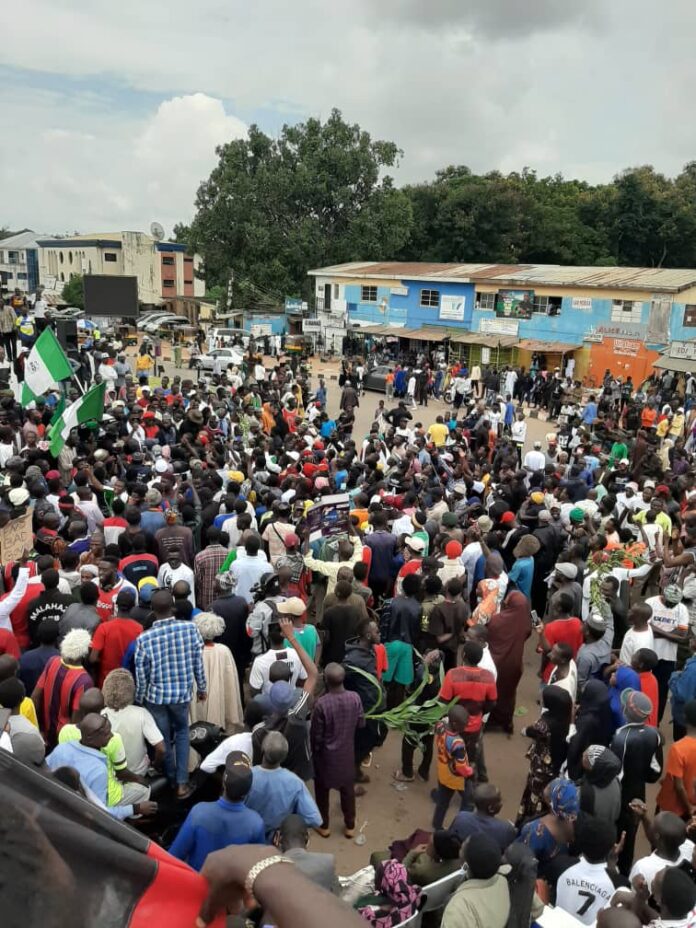By Joy Musa
Protests erupted across several states in Nigeria on Monday as citizens voiced their concerns over bad governance, worsening economic conditions, and a range of socio-political issues. In Lagos, protesters gathered at Ikeja Under Bridge, calling for urgent reforms and greater accountability from the government.
The demonstration, which was part of a nationwide movement, was organized by the Take-It-Back Movement alongside various civil society organizations. It quickly gained momentum, with similar protests taking place in Rivers State and other parts of the country. The organizers are determined to amplify the voices of ordinary Nigerians who are bearing the brunt of what they describe as failed leadership.
At the heart of the protest were accusations of government overreach, particularly regarding the alleged misuse of the Cybercrime Act. Protesters argue that the Act has been used to silence critics, with many citing recent arrests of social media influencers and journalists as evidence of the state’s growing authoritarianism.
One of the major issues raised during the protest was the growing economic hardship faced by millions of Nigerians. High inflation, unemployment, and insecurity have made daily life increasingly difficult for the average citizen. Demonstrators carried placards with messages such as, “Any law that forbids us from speaking against oppression in Nigeria is no longer a law but shackles of slavery,” and “When law becomes a tool of oppression, unite to repeal it.” These signs reflect the anger and frustration felt by many Nigerians who feel that their basic freedoms are being eroded.
The situation in Rivers State also sparked significant concern among protesters. Many decried what they described as a “state of emergency” in the region, referring to reports of heavy-handed government tactics and the suppression of dissent. The protesters are calling for greater autonomy and respect for the rights of citizens in Rivers, accusing the local administration of undermining democratic principles.
In a statement released last Friday, Juwon Sanyaolu, the National Coordinator of the Take-It-Back Movement, explained that the protests were a direct response to what they view as the administration’s increasing authoritarianism. Sanyaolu emphasized that the movement was focused on resisting the government’s attempts to curb freedom of expression and to demand urgent relief for Nigerians facing rampant inflation, insecurity, and other pressing challenges.
The protests, while peaceful in nature, have garnered attention both locally and internationally. Activists believe that the demonstration could mark the beginning of a larger push for democratic reforms in Nigeria, one that aims to address systemic corruption, lack of accountability, and the growing disconnect between the government and the people.
As the protests continue across Nigeria, it remains to be seen whether the government will respond with the necessary reforms or whether the demonstrations will spark a larger national conversation about the future of governance in Africa’s most populous nation.
For now, Nigerians continue to voice their demands, standing united in their call for justice, better governance, and a brighter future for all.







